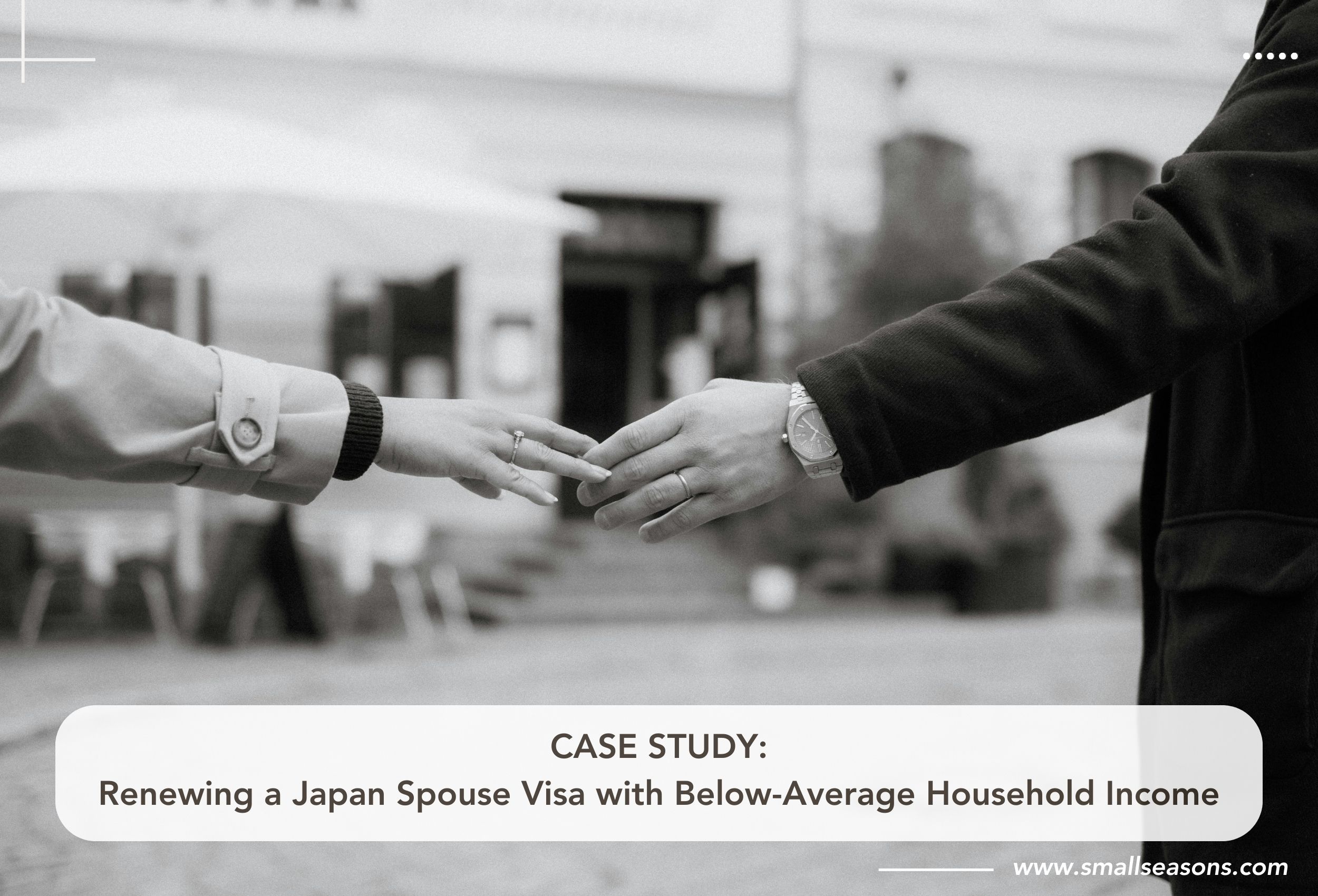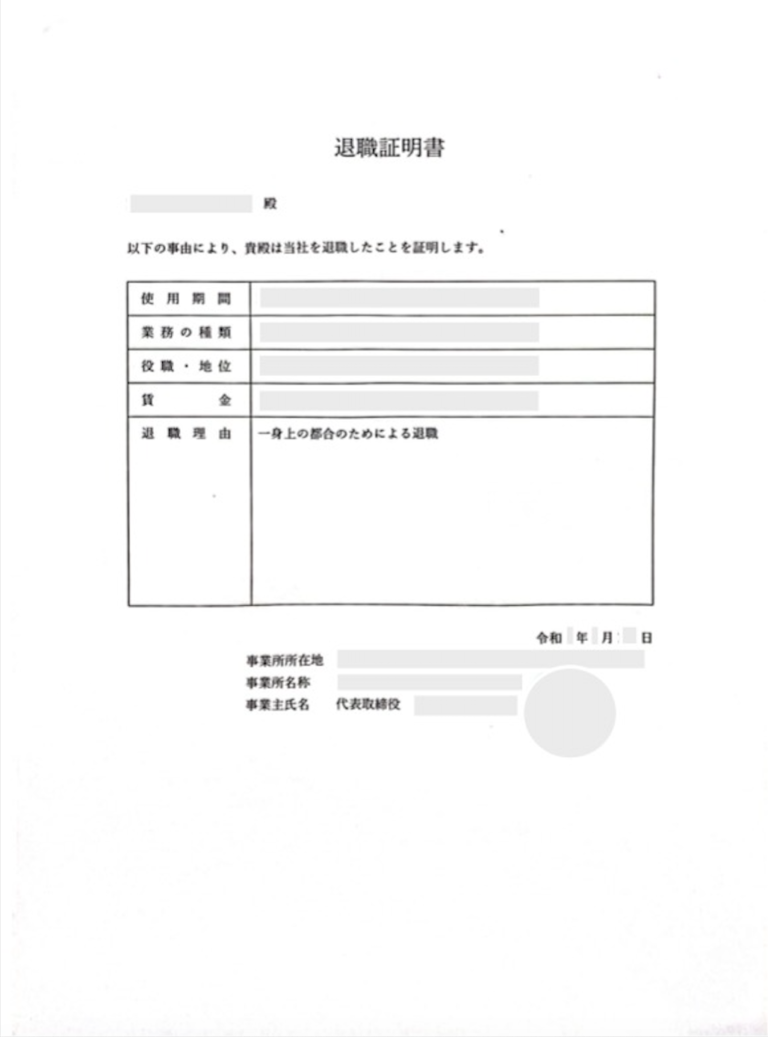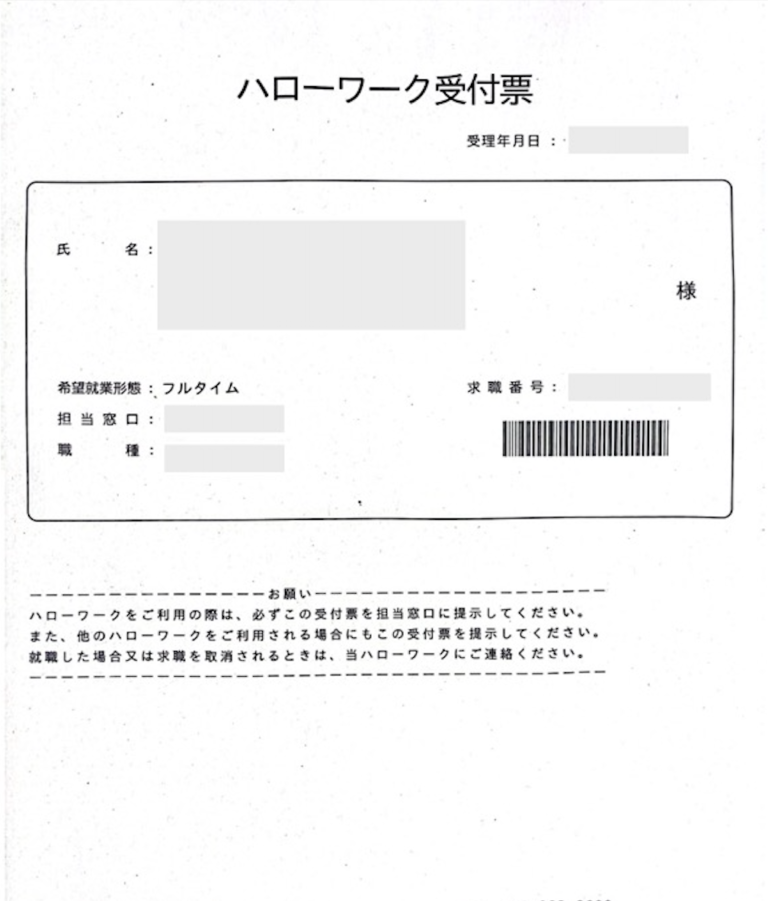#visa
Renewing a Spouse Visa in Japan - Case Study
This is a case study of a Japanese and Russian couple who received a one-year visa extension despite having financial difficulties.
This is a case study of a Japanese and Russian couple who received a one-year visa extension despite having financial difficulties.


This case study has been reviewed by the clients and approved for publication.
The outcome of this case does not guarantee similar results for other applications, as each case is unique and influenced by various critical details.
All personal information has been anonymized to protect the privacy of the clients.
By sharing this case study, we aim to provide insight into the complexities of Spouse Visa applications and the importance of thorough preparation and documentation.
Our clients, a Japanese wife and a Russian husband, both in their 20s, faced significant challenges in their Spouse Visa renewal application due to their financial circumstances.
The Japanese wife was on a service contract with multiple streams of income averaging below 200,000 yen per month. Despite a projected increase in her income, at the time of the application, her earnings did not meet the general financial standards typically required for visa approval. The Russian husband had left his job in the summer, complicating their financial situation further.
In Spouse Visa applications, the stability of the household’s finances and the prospect for future financial stability are critical.
While Spouse Visa is granted based on family relationship, it is essential to demonstrate that the family can support itself financially. This requirement ensures that the applicants will not become a “burden on public resources” from the immigration bureau’s perspective.
Given the complexities of our clients’ financial situation, we carefully selected the most compelling documents to support their application. Here are some of the documents we submitted:
We prepared a detailed letter explaining the husband’s employment situation. This letter clarified that the husband had left his job for valid reasons and was actively seeking new employment opportunities in his field of expertise.
Additionally, the letter highlighted the temporary nature of his unemployment, his strong desire to re-enter the workforce, and the financial status of the wife, which was important for demonstrating future financial stability.
To strengthen the application, we included a letter of guarantee from the wife’s father, who also submitted a letter stating his commitment to provide monthly financial support to the couple until their financial situation improved.
Additionally, the father’s letter vouched for the husband’s character, adaptability to Japanese culture, and his eagerness to find work. This endorsement added significant credibility to the husband’s willingness and ability to contribute to the household’s finances.
The father’s withholding tax slip was also submitted to demonstrate his employment status and high income were submitted, further substantiating his capability to support the couple financially.
To demonstrate the husband’s employability and skills, we included documentation of his previous job. This showed that he was skilled enough to be hired but had to leave due to a cultural mismatch at his former workplace.

To further demonstrate the husband’s eagerness to work, we submitted proof of his registration with Hello Work, Japan’s public employment service. This was critical in showing his proactive approach to finding new employment.

In the end, we successfully secured a one-year renewal for the couple’s Spouse Visa. While this case study demonstrates a successful outcome, it does not guarantee similar results for other applications, as many critical details unique to each case can influence the approach and decision.
There were many ways we could explain the situation to the immigration bureau, and it took us weeks to determine the best one, assessing each of the available documents for submission.

Saki Nakahara, the immigration lawyer at Small Seasons & Co., shared her thoughts on the case:
“They were a lovely couple. It was a very difficult situation, and we explained to them that it is highly likely they might not get the visa renewal approved this time. The key was understanding that evidence meant everything and ensuring that everyone was on board.“
Those renewing a spouse visa might be aiming for permanent residency in Japan. For this, you need a 3-year period of stay to be eligible to apply, and you must have been married for more than 3 years, with a minimum of 1 year of residence in Japan.
At Small Seasons & Co., we provide support from the initial consultation through to the actual application process. What sets us apart is our understanding of the complexity and mental burden it places on you when you don’t seem to “meet the standards.“
Every couple’s situation is unique, and we are not here to judge.
We recommend starting to think about the renewal early on, particularly if household income is a difficult point to prove or if neither of you have full-time contracts.
Initial Consultation:
Engage in an initial paid consultation to discuss your needs.
Estimation Confirmation:
Review and confirm the estimate issued by Small Seasons & Co.
Contract Signing and Advance Payment:
Sign the contract and make the required advance payment.
Strategy Session:
Participate in in-depth discussions regarding timelines and required materials.
Document Collection and Signing:
Obtain necessary items and complete the required document signings.
Certificate of Eligibility (COE) Application Submission:
Small Seasons & Co. will manage the submission of your COE application.
Feedback on COE Results:
Receive feedback on the COE application results; if approved, the original copy will be delivered to your address.
Final Invoice Issuance:
Receive the final invoice for the services provided.
Japanese Visa Issuance:
Take the COE to a Japanese embassy/consulate in your home country to obtain your visa.
Entry into Japan:
Enter Japan within 90 days of the COE issuance.
